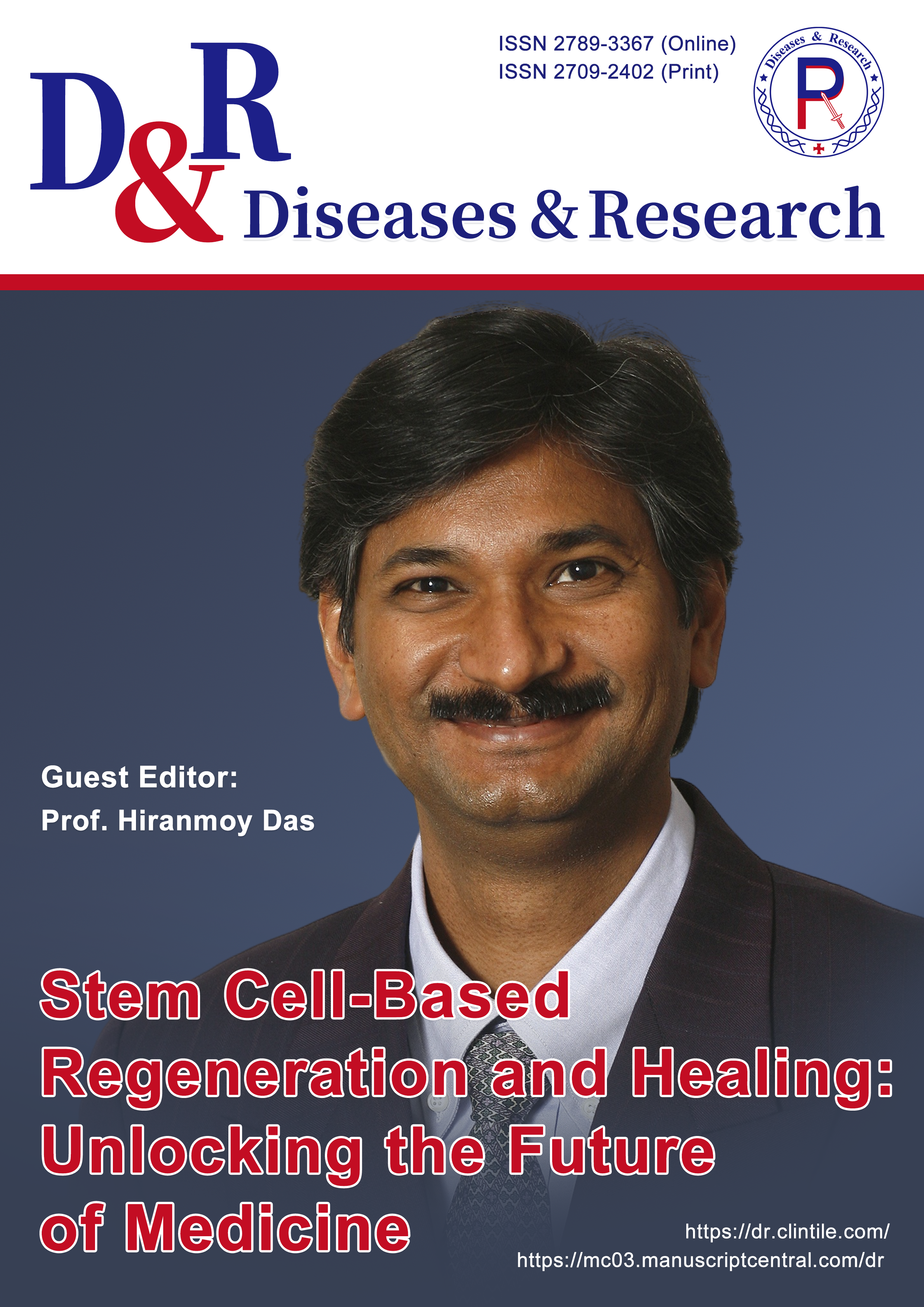
Topic: Stem Cell-Based Regeneration and Healing: Unlocking the Future of Medicine
Guest Editor(s):
Prof. Hiranmoy Das
Department of Pharmaceutical Sciences, Texas Tech University Health Sciences Center, Amarillo, USA.
Special Issue Introduction
Stem cell-based therapies have ushered in a new era of regenerative medicine, offering groundbreaking solutions for repairing tissues, treating chronic diseases, and enhancing human health. These therapies, built on the unique ability of stem cells to self-renew and differentiate into specialized cell types, hold the potential to revolutionize the management of conditions previously deemed incurable. Despite remarkable progress, challenges such as clinical translation, ethical concerns, and the intricacies of stem cell biology remain, necessitating deeper investigation and innovation in this promising field.
The therapeutic applications of stem cells are vast, encompassing neuroregeneration, cardiovascular repair, diabetes management, and orthopedic injuries. For instance, hematopoietic stem cells (HSC) are being used for cancer therapy, mesenchymal stem cells (MSC) are being used to promote bone and cartilage regeneration, while induced pluripotent stem cells (iPSC) are emerging as a safer, ethical alternative to embryonic stem cells for organ regeneration and disease modeling. Novel approaches utilizing dental pulp stem cells (DPSC) are also gaining traction for craniofacial tissue repair and neurodegenerative conditions.
The mechanisms underlying stem cell-mediated regeneration are multifaceted. Cellular differentiation restores damaged tissues, paracrine signaling promotes angiogenesis and immunomodulation, and advances in 3D organoid culture and tissue engineering provide platforms for personalized therapies. Coupled with cutting-edge technologies like CRISPR-Cas9 gene editing, these approaches are redefining the landscape of regenerative medicine.
Despite these advancements, several barriers hinder the widespread application of stem cell therapies. Ethical debates surrounding embryonic stem cells, challenges in ensuring safety and efficacy during transplantation, and the high cost of clinical implementation are persistent issues. Additionally, there is a pressing need for standardized protocols and regulatory guidelines to facilitate the development of safe and effective treatments.
This special issue explores the dynamic and rapidly evolving field of stem cell-based therapies. By presenting a collection of original research articles, reviews, and case studies, this issue will delve into:
(1)Advances in stem cell biology and therapeutic applications.
(2)Mechanisms of stem cell-mediated healing, including differentiation, signaling and immunomodulation.
(3)Emerging technologies like bioengineering, organoid culture, and pharmacogenomics.
(4)Overcoming challenges in clinical translation, cost-effectiveness, and accessibility.
The objective is to provide a comprehensive overview of current advancements and challenges while fostering collaboration and innovation. This special issue aims to inspire researchers and clinicians to push the boundaries of what stem cell-based therapies can achieve by addressing gaps in knowledge and identifying future directions.
We invite researchers, clinicians, and industry experts to contribute their findings and insights to this special issue. Together, let us advance the science of regeneration and healing, paving the way for a future where stem cell therapies transform the practice of medicine.
Call for contributions
We welcome submissions of original research, comprehensive reviews, and case studies focused on any aspect of stem cell-based regeneration and healing. Contributions addressing clinical translation, ethical considerations, or novel therapeutic applications are encouraged.
Submission topics include but are not limited to:
(1)Advances in stem cell-derived organoids and bioengineered tissues.
(2)Mechanisms of immune modulation in stem cell therapy.
(3)Cutting-edge technologies like gene editing and 3D bioprinting.
(4)Development of pharmacological compounds for modifying the effectiveness of stem cells.
(5)Methods for plentiful expansion of stem cells including clinical grade.
(6)Methods for effectively differentiating stem cells.
(7)Clinical applications for treating chronic diseases and injuries.
(8)Strategies for overcoming barriers to clinical translation.
Closing statement
This special issue represents an exciting opportunity to showcase the transformative potential of stem cell research. By sharing knowledge and fostering innovation, we can collectively work toward a future where regenerative medicine delivers on its promise to heal and restore.
Researchers are encouraged to submit their work and join this journey to unlock the full potential of stem cell-based therapies. Together, let us shape the future of medicine.
Submission Deadline: 30 September 2025
Submission Information:
Articles of special issue are free of charge for article processing.
For Author Instructions, please refer to:https://dr.clintile.com/To_Authors
For Online Submission, please login at: https://mc03.manuscriptcentral.com/dr
Submission Deadline: 30 September 2025
Contacts: Editorial Office, editorialoffice@disresjournal.com






